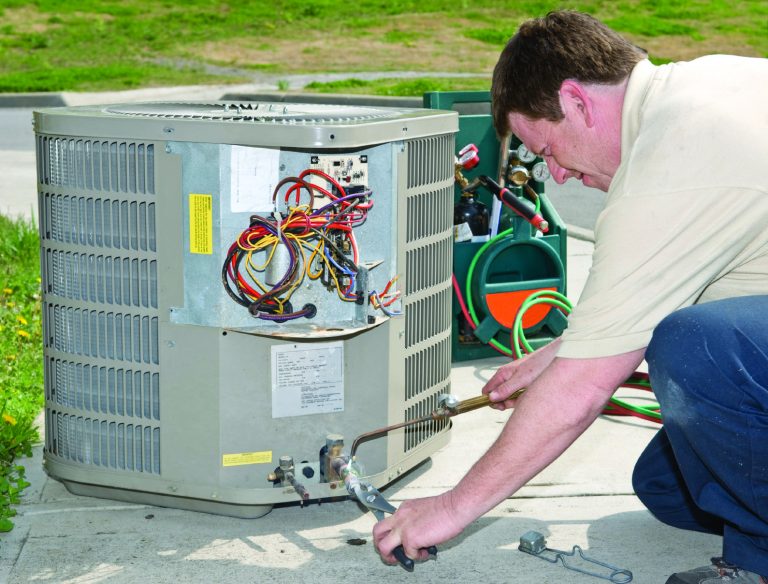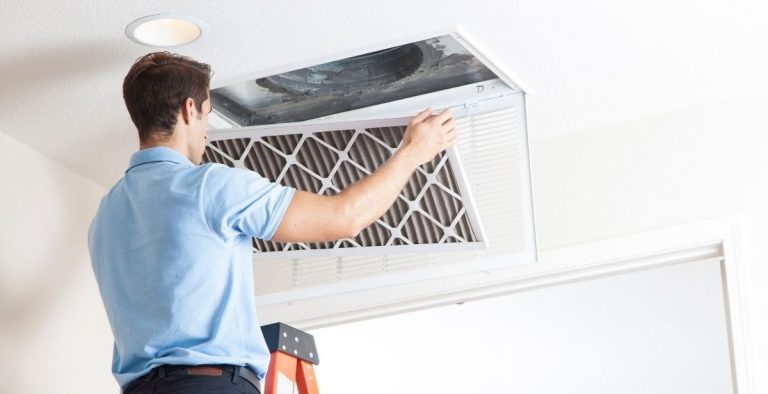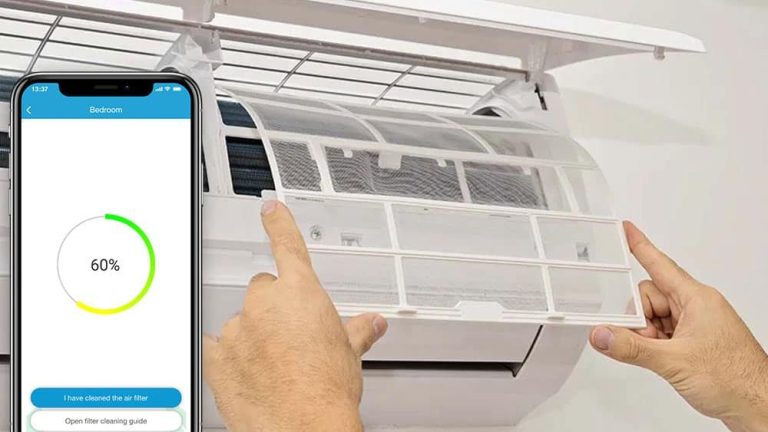Air Conditioner Keep Freezing Up? Here’S How To Solve The Problem!
An air conditioner freezing up can be caused by various factors, such as low refrigerant levels, restricted airflow, or a faulty thermostat. To fix the issue, try cleaning the air filters, checking for any clogged vents, and ensuring proper refrigerant levels. If the problem persists, it is recommended to contact a professional HVAC technician for further inspection and repairs.
In the midst of sweltering summer heat, the last thing anyone wants is for their air conditioner to freeze up. Yet, it’s a common problem that many homeowners and renters face.
Picture this: it’s a scorching day, and you’re counting on your AC to keep you cool. Suddenly, you notice that the air is no longer flowing, and a layer of ice has formed on the unit.
Frustrating, isn’t it? But here’s something that might surprise you: an air conditioner freezing up is not a symptom of it working too hard. In fact, it’s quite the opposite. When an AC freezes up, it’s a sign that something is amiss, and ignoring the issue can lead to costly repairs or even complete system failure.
Understanding the causes, recognizing the signs, and finding solutions to prevent or fix the issue are crucial for maintaining a comfortable and efficient home. For homeowners or renters who rely on air conditioning units, dealing with a freezing AC is a frustrating and inconvenient experience. It’s not just a matter of comfort; it’s about ensuring the longevity of your cooling system and avoiding unnecessary expenses.
Common Causes of Air Conditioners Freezing Up
When your air conditioner freezes up, it’s important to understand the underlying causes in order to effectively address the issue. Here are some common reasons why air conditioners freeze:
Lack of Airflow
One of the primary culprits behind a freezing air conditioner is a lack of airflow. If the airflow is restricted, the temperature of the evaporator coil drops too low, causing condensation to freeze on the coil. Several factors can contribute to a lack of airflow:
Clogged Air Filter
A clogged air filter is a common issue that restricts airflow. Over time, dust, dirt, and other debris accumulate in the filter, obstructing the passage of air. This forces the air conditioner to work harder, leading to a drop in temperature and potential freezing.
Blocked Vents or Registers
Blocked vents or registers prevent the proper circulation of air throughout your home. Furniture, curtains, or other objects may inadvertently obstruct the vents, reducing the amount of airflow and causing the evaporator coil to freeze.
Faulty Blower Motor
A malfunctioning blower motor can significantly impact airflow. If the blower motor is not operating at its full capacity, inadequate air circulation can cause the evaporator coil to freeze. Regular maintenance and prompt repairs can help prevent this issue.
Refrigerant Issues
Refrigerant plays a crucial role in the cooling process of an air conditioner. It absorbs heat from the indoor air, cooling it down before releasing it back into your home. When refrigerant levels are imbalanced, it can lead to freezing. Common refrigerant-related issues include:
Low Refrigerant Levels
If your air conditioner is low on refrigerant, it can cause the evaporator coil to get too cold, leading to freezing. Low refrigerant levels are typically a sign of a leak in the system, which needs to be repaired by a professional HVAC technician.
Refrigerant Leak
A refrigerant leak can disrupt the proper functioning of your air conditioner. When refrigerant leaks, it not only reduces the system’s cooling capacity but also affects the balance of refrigerant levels, potentially causing the evaporator coil to freeze up. A qualified technician can identify and repair any leaks in your system.
Thermostat Issues
Your thermostat is the control center of your air conditioner. If it’s not functioning correctly, it can cause cooling problems, including freezing. Here are some thermostat-related issues to watch out for:
Misplaced Thermostat Sensor
The thermostat sensor measures the temperature of the air near the evaporator coil. If it’s out of position or faulty, it can send inaccurate signals to the AC unit, causing the coil to freeze. Ensuring the sensor is positioned correctly or replacing a malfunctioning sensor can resolve this issue.
Thermostat Malfunction
A malfunctioning thermostat can make it difficult for your air conditioner to regulate temperature effectively. If the thermostat fails to communicate accurate temperature readings to the system, it can result in overcooling, leading to freezing. If you suspect a faulty thermostat, consider getting it inspected and replaced if necessary.
Poor Insulation
Inadequate insulation can contribute to air conditioner freeze-ups. If warm external air infiltrates the system’s ducts or the air handler cabinet, it can lower the temperature of the evaporator coil and cause condensation to freeze. Here are some insulation-related issues to be aware of:
Duct Leaks
Leaky air ducts allow warm air from unconditioned areas to seep into the system, disrupting the cooling process and potentially causing freezing. Sealing any leaks in your ductwork can improve energy efficiency, prevent freezing, and enhance the overall performance of your air conditioning system.
Poorly Insulated Air Handler Cabinet
If the air handler cabinet lacks proper insulation, it can result in heat gain from the surrounding environment. This elevates the evaporator coil’s temperature, leading to freezing. Adding insulation to the air handler cabinet can help maintain the desired temperature and prevent freezing.
Preventing Air Conditioners From Freezing Up
While air conditioners freezing up can be a frustrating problem to deal with, there are steps you can take to prevent it from happening. Here are some preventive measures:
Regular Maintenance
Scheduling regular maintenance for your air conditioner is essential for its optimal performance. A professional HVAC technician can inspect your unit, clean the coils, check refrigerant levels, and ensure that all components are in proper working order. Regular maintenance can catch potential issues before they escalate into major problems.
Changing Air Filters
Regularly changing your air filters is imperative for good airflow and preventing freezing. Follow the manufacturer’s guidelines and replace the filters at least every three months or more frequently if you have pets or suffer from allergies. Clean filters allow for unrestricted airflow and keep the evaporator coil from becoming excessively cold.
Keeping Vents and Registers Clear
Ensure that all vents and registers in your home are clear of obstructions. Avoid placing furniture or objects near them that could impede the airflow. Maintaining clear vents and registers allows for proper circulation and helps prevent freezing.
Sealing Duct Leaks
Inspect your air ducts for leaks and seal any gaps or cracks. This will prevent warm air from infiltrating the system and causing the evaporator coil to freeze. Paying attention to your ductwork’s integrity improves energy efficiency and reduces the likelihood of freezing.
Dealing with a freezing air conditioner can be a frustrating experience, but by understanding the causes and taking preventive measures, you can minimize the chances of it happening. Maintaining regular maintenance, ensuring proper airflow, addressing refrigerant issues, and improving insulation can go a long way in preventing air conditioners from freezing up. If you’re unsure or unable to handle the problem yourself, it’s always best to consult a professional HVAC technician for assistance.
I can't believe Mechanics don't know How to Recharge AC system correctly!
Frequently Asked Questions (FAQ)
Why does my air conditioner keep freezing up?
How can I prevent my air conditioner from freezing up?
Can a dirty air filter cause my air conditioner to freeze up?
Should I turn off my air conditioner if it’s frozen?
Do I need to call a professional to fix my frozen air conditioner?
Conclusion: Preventing and Addressing the Freezing of Your Air Conditioner
In conclusion, when your air conditioner keeps freezing up, there are several common causes that you should be aware of. One of the main reasons for freezing is a lack of airflow, which can be caused by a clogged air filter, blocked vents or registers, or a faulty blower motor.
Another issue that can lead to freezing is imbalanced refrigerant levels, either due to low refrigerant or a refrigerant leak. Finally, thermostat issues, such as a misplaced sensor or a malfunctioning thermostat, can also cause freezing.
To prevent your air conditioner from freezing up, it is important to take some preventive measures. Regular maintenance by a professional HVAC technician is crucial to ensure optimal performance and catch potential issues early on. Changing the air filters regularly is also essential for good airflow.
Keeping vents and registers clear of obstructions and sealing any duct leaks can help maintain proper circulation and prevent freezing. Understanding the causes and implementing preventive measures can significantly reduce the chances of your air conditioner freezing up. However, if you are unsure or unable to address the problem yourself, it is best to consult a professional HVAC technician for assistance.






